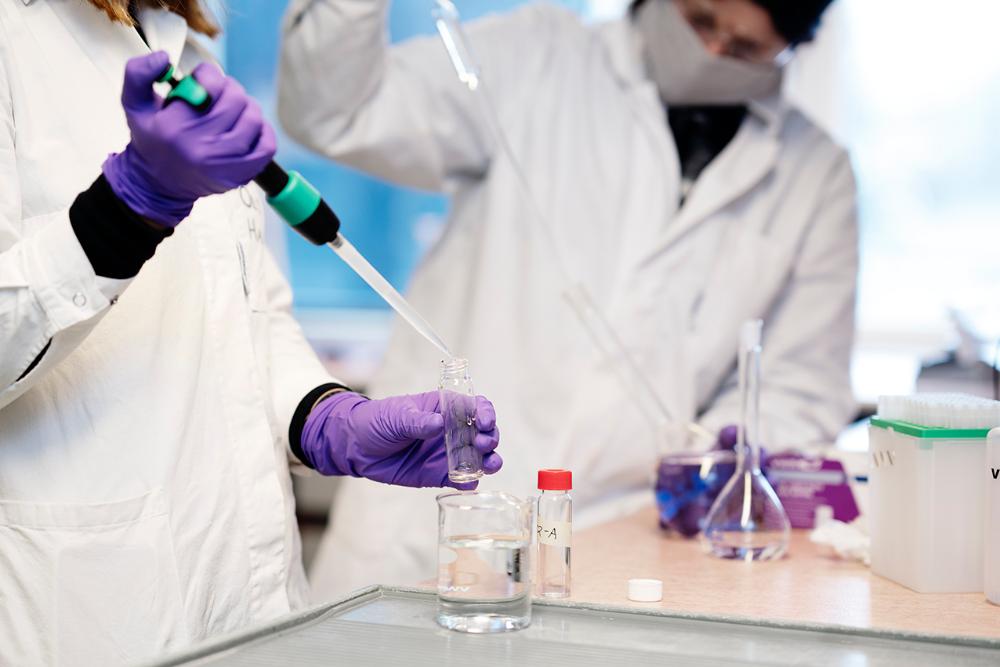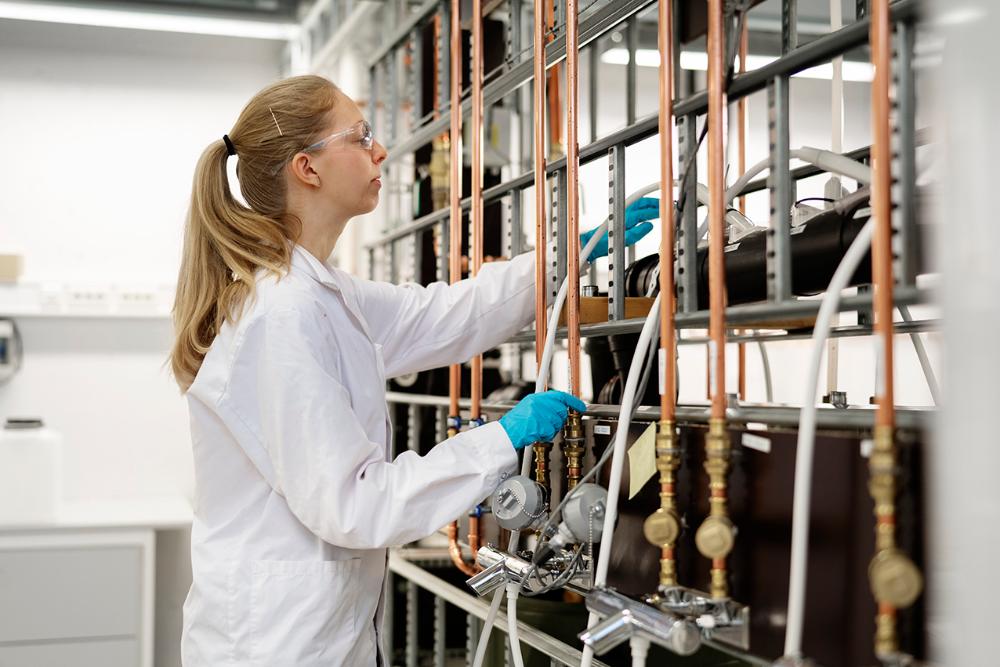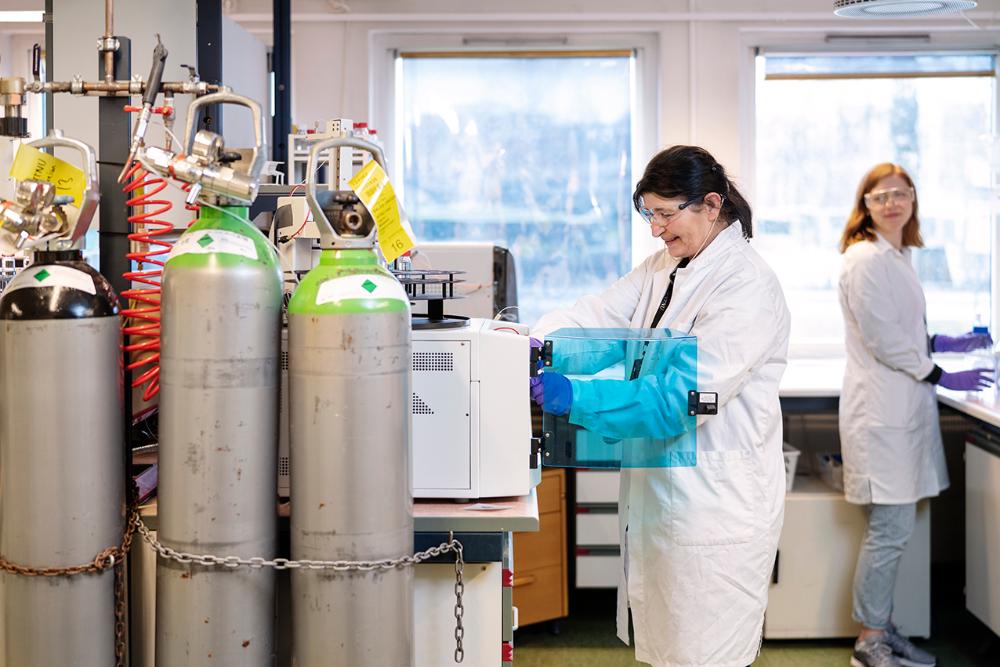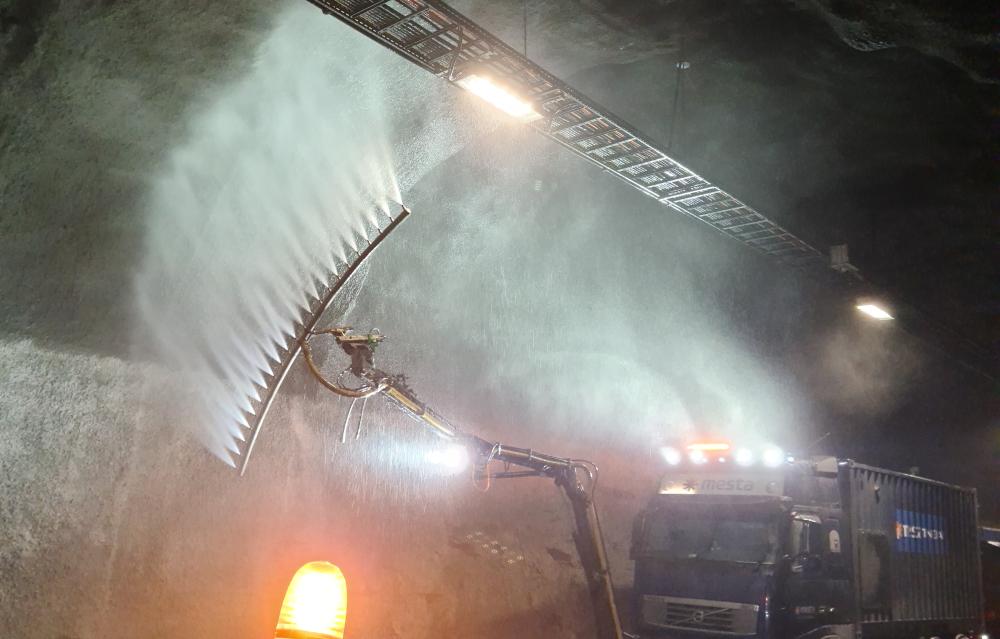IBM - Laboratories - Drinking water lab
Drinking water laboratories

The laboratory is mainly used for work related to drinking water, but also for other topics that are not municipal wastewater, such as storm water, landfill leachate, tunnel wash water etc.
The lab has facilities for the setup of pilot equipment. Examples for that are a premise plumbing pilot, where conditions in household installations are mimicked, to investigate the presence of Legionella in the drinking water.
There are several membrane treatments plants, one for drinking water treatment and one for tunnel wash water. In the past the lab has hosted various projects with different water treatment processes involved, such as ozonation, advanced oxidation process (AOP), coagulation and flocculation, rapid filtration, microfiltration etc.
The lab is also used for teaching in the course TVM7143 - Drinking water treatment.”
Legionella

Contact: Cynthia Halle
How do we characterize water?

In the laboratory a wide range of standard parameters to characterize and establish water quality are measured. The lab is equipped with infrastructure to measure several forms of dissolved carbon present in the water, as well as wide range of elements which are commonly present in water (Na, Ca, K, Mg,). In addition, there are the necessary facilities to work in sterile conditions and extract DNA from water sample for deeper analysis of the water microbiological parameters. Photo: Lars Erik Berg
Tunnel water

Norway has more than 1000 road tunnels. To have safe traffic conditions and enhance lifespan of the tunnels, they are frequently cleaned and washed. Wash water does contain a cocktail of pollutants consisting of e.g. heavy metals, different PAHs, soap, microplastic (e.g. tire wear), road salt etc. In the NFR fundet project TreatRW, we would like to find out more about the water quality and develop future treatment strategies, in collaboration with the Norwegian Public Roads Administration, Nye Veier AS, Aquateam COWI, and Aalborg University.
Contact: Thomas Meyn
